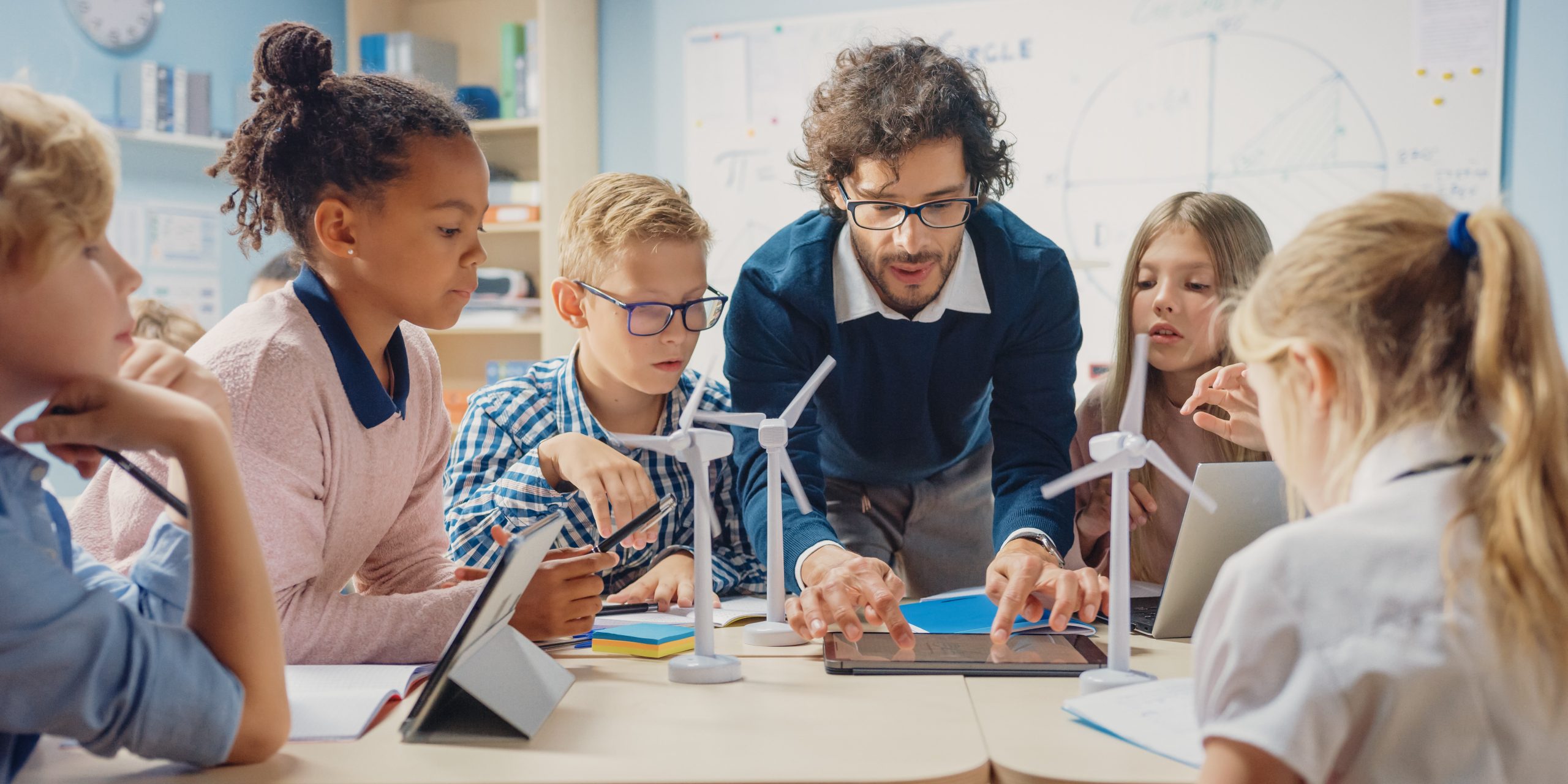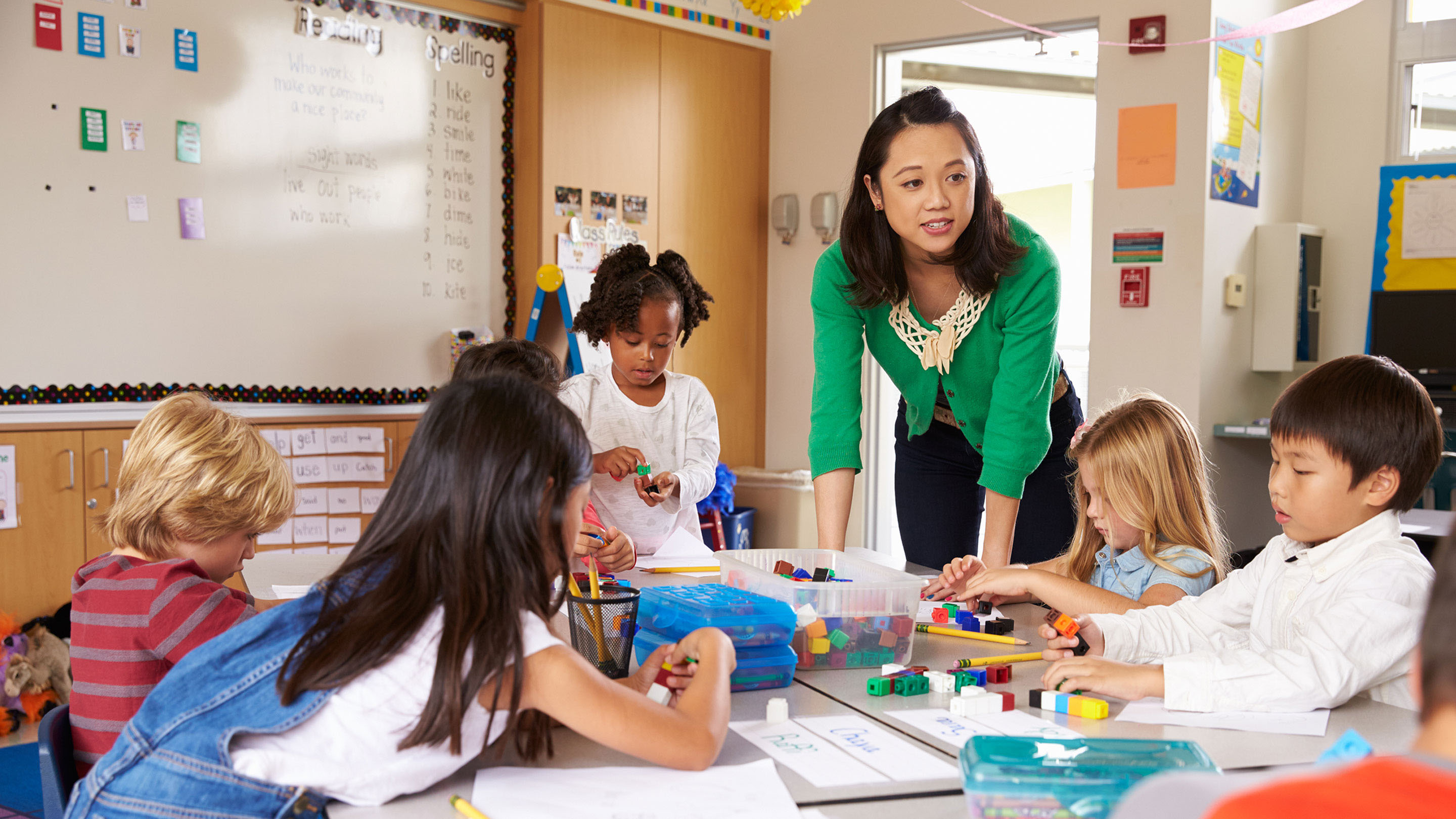Master Primary Science Concepts with Quality Tuition in Singapore
Master Primary Science Concepts with Quality Tuition in Singapore
Blog Article
Exploring the Different Teaching Approaches in Primary Scientific Research Education And Learning Today
The landscape of main scientific research education and learning is evolving, with different training approaches getting importance in contemporary class. Inquiry-based knowing, hands-on experiments, and the assimilation of innovation are redefining just how instructors involve young minds. In addition, collaborative approaches and set apart instruction are being employed to accommodate the varied requirements of students, boosting both engagement and understanding. As we check out these methods, concerns develop concerning their performance and the effects for future academic methods. What might these changes in approach mean for the following generation of learners?
Inquiry-Based Understanding
Inquiry-Based Learning (IBL) is an instructional technique that urges pupils to check out clinical ideas with wondering about, investigation, and hands-on experimentation. This method highlights the duty of pupils as energetic individuals in their discovering, advertising crucial thinking and analytic abilities. By involving with real-world inquiries, pupils end up being inspired and interested, which improves their understanding of clinical concepts.
In IBL, educators function as facilitators, assisting students as they navigate their queries rather than supplying info straight. This student-centered approach allows for differentiation, fitting different learning paces and styles. Trainees create abilities in developing hypotheses, making experiments, and assessing information, which are crucial for clinical proficiency.
Additionally, IBL fosters cooperation among trainees, motivating them to share findings and concepts. This cumulative query promotes social abilities and a feeling of area within the classroom. The process of inquiry urges durability, as pupils discover to accept failing as a stepping stone towards understanding.
Hands-On Experiments
Hands-on experiments are an essential component of reliable science education, complementing the concepts of inquiry-based discovering. These experiments enable pupils to involve directly with clinical principles, promoting a deeper understanding with experiential learning. By manipulating products and observing outcomes, young students can grasp abstract concepts in substantial means.
Such tasks promote important thinking and analytical abilities, as pupils hypothesize outcomes, conduct experiments, and evaluate outcomes. This procedure urges them to ask questions, refine their understanding, and establish a scientific state of mind. Moreover, hands-on experiments can be customized to varied understanding styles, guaranteeing that all students have the possibility to involve meaningfully with the content.
In addition, hands-on experiments frequently urge partnership amongst peers, advertising teamwork and communication abilities. Operating in groups makes it possible for pupils to share concepts, review searchings for, and gain from one an additional, which boosts their overall academic experience.
Integrating hands-on experiments right into the primary science educational program not only improves the learning atmosphere however additionally grows a long-lasting interest in science. By proactively joining their education, pupils are most likely to create a passion for clinical questions that extends beyond the class.

Innovation Integration
Integrating modern technology right into primary scientific research education has ended up being increasingly crucial in cultivating trainee involvement and enhancing discovering outcomes. The use of electronic devices, such as interactive simulations, virtual labs, and instructional software program, gives pupils with chances to discover scientific ideas in ingenious methods. These sources facilitate a deeper understanding of complicated topics by allowing learners to imagine and adjust variables that would certainly be impractical investigate this site in a typical classroom setting.
Furthermore, modern technology assimilation encourages customized finding out experiences. Students can advance at their own rate, reviewing tough principles with multimedia sources, which satisfy different discovering styles. This adaptability not just supports specific development however likewise grows a feeling of autonomy in students.
Furthermore, innovation functions as a bridge to real-world science, attaching students with present research study and professional contributions. Access to clinical journals and on-line databases widens pupils' perspectives on clinical query and promotes vital thinking skills.
Collaborative Understanding
Collaborative learning plays a crucial role in key science education by cultivating synergy and communication abilities amongst students. This approach motivates students to collaborate, share understanding, and take part in problem-solving, which improves their understanding of scientific principles. By participating in team tasks, students discover to express their ideas, listen to varied viewpoints, and work out options, all of which are crucial skills in both scholastic and real-world contexts.

Research suggests that collaborative knowing can bring about raised inspiration and involvement in scientific research topics, as pupils locate satisfaction in common experiences (primary science tuition Singapore). Furthermore, this strategy prepares trainees for future joint endeavors, outfitting them with the skills needed for reliable synergy in college and expert environments. Eventually, try this site embracing collaborative understanding in primary scientific research education and learning can significantly enrich the understanding experience and advertise a deeper understanding of clinical questions
Set Apart Direction

Distinguished direction can manifest in different methods, such as differing the content, procedures, or items of discovering. Educators might use tiered assignments that supply differing levels of complexity, enabling trainees to work at their particular preparedness degrees. In addition, flexible organizing pop over to these guys techniques can promote cooperation among students with various capabilities, promoting peer knowing.
Evaluation plays a crucial duty in this approach, as it educates direction and aids educators recognize each trainee's distinct needs. Formative analyses, such as observations and tests, can lead educators in readjusting their strategies to improve discovering results. primary science tuition Singapore. Eventually, by implementing distinguished instruction in key science education, teachers can cultivate a more fair and reliable discovering atmosphere, equipping all pupils to reach their full capacity in recognizing scientific sensations
Verdict
In summary, the varied teaching strategies in primary science education and learning, consisting of inquiry-based knowing, hands-on experiments, modern technology combination, joint discovering, and distinguished instruction, jointly contribute to a more reliable knowing atmosphere. These techniques promote important thinking, analytical abilities, and a deeper comprehension of clinical ideas. By applying these approaches, educators can create appealing and encouraging class that deal with the varied demands of pupils, ultimately fostering a lifelong passion in science and boosting scholastic achievement.
Inquiry-Based Discovering (IBL) is an instructional approach that motivates students to discover clinical ideas through doubting, examination, and hands-on trial and error.Collaborative learning plays a vital duty in main science education by fostering team effort and communication abilities among pupils.Study shows that collective learning can lead to increased motivation and interaction in scientific research subjects, as students locate satisfaction in shared experiences.In cultivating a comprehensive discovering setting, set apart guideline arises as an essential approach to fit the diverse needs and capacities of students in main science education. Ultimately, by executing set apart instruction in primary scientific research education, instructors can grow a more equitable and efficient knowing atmosphere, equipping all pupils to reach their complete capacity in understanding scientific phenomena.
Report this page